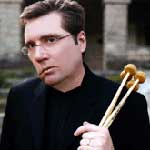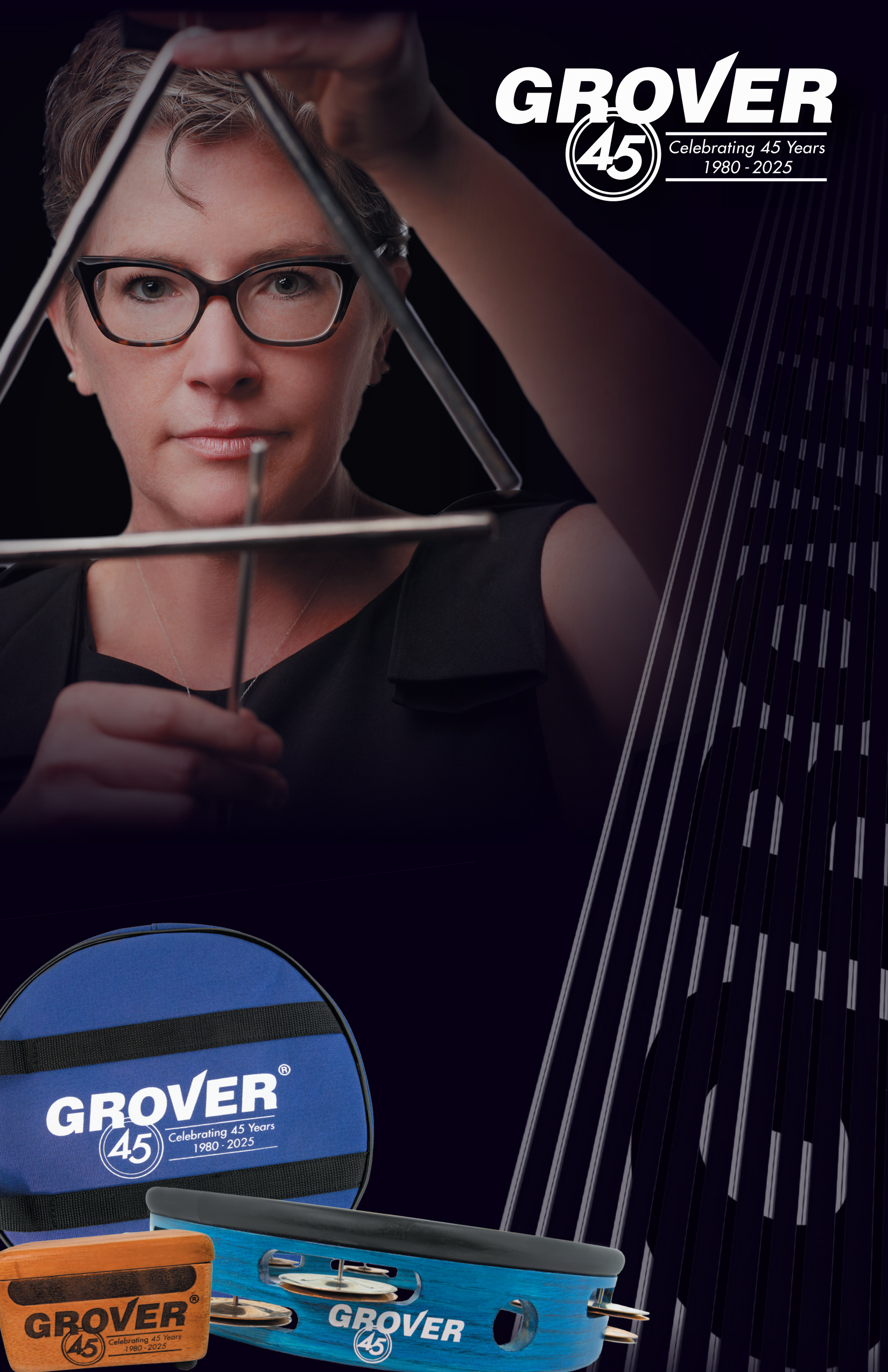My percussion program here at the University of Iowa has a tradition of beginning each semester with our own little “convocation,” that sets the tone for the semester. We use it to formalize our goals and get everyone on the same page for how we will focus our energy for the next fifteen weeks or so.
One particular year I began the convocation by playing an old jazz standard, Body and Soul, on vibes before talking about the idea of giving oneself to the study of music“body and soul” — meaning to fully immerse yourself in music making mentally, physically and spiritually.
Within a day of that talk, two members of the freshman class changed their major. I am fairly certain that those students probably would’ve eventually made the choice to pursue another career, but the thought of such a commitment literally scared them out of the program. I also watched that semester as other students embraced the concept and made amazing strides.
The bottom line is that becoming a good instrumentalist is a fairly simple process. There are some things you need to learn how to do that aren’t really that complicated. Many students find that they want to become music majors because it was something they had done throughout high school and everything seemed to come so easy to them. But facing the prospect of what it takes to become a true musician can be terrifying to some.
Here are some simple questions to ask yourself to help determine if you are prepared to pursue music body and soul:
1) Do you say; “I HAVE to go practice,” or “I GET to go practice?”
Being a great musician isn’t about forcing yourself into a practice room with a heavy sigh, or announcing to the world “I guess I should get off Facebook and go practice.” It is about having an insatiable desire to play and learn about music. When you get to the point where you’d rather practice than do most things – play computer games, sports, or sit on the couch and watch TV, you will have crossed over to the place where the desire to achieve overtakes you.
2) Do you have tolerance or desire for solitude?
Some people are autophobic meaning that they are afraid to be alone. This is not good for a musician. We spend much of our time in the solitary pursuit of the perfect thumb roll. It is not generally a shared experience. This might be why you will see people “hanging out” in the percussion area but not really practicing. The social aspect of music is more appealing to them than standing alone in a practice room for hours. People who give themselves body and soul to music spend a lot of time alone.
3) Where is your pencil?
In his essay “Why Write” Paul Auster tells the story of meeting his childhood idol, Willie Mays and trying to get an autograph. After mustering the courage to break through the crowd for the autograph Mays asked; “Do you have a pencil?” He didn’t, and no one else did either, to which Mays replied; “no pencil, no autograph kid.” To this day Auster, a professional writer, ALWAYS carries a pencil. The moral of the story is that you must be prepared to do your best. You should ALWAYS have everything you need to play and practice your best. That means owning your own instruments, sticks and mallets, and music (and yes, probably a pencil).
The pencil story was adapted from the book, The Creative Habit by dancer and choreographer, Twyla Tharp. Next time, we can determine how “the creative habit” can help you be a better musician, but for now, keep practicing and giving yourself to music body and soul.
 Dan Moore is an internationally known musician, composer, and educator. He performs throughout the U.S. and in international venues such as the 2007 International Marimba Festival in Chiapas, Mexico; the International Percussion Festival in Patagonia, Argentina (2005, 2006); conservatories in The People’s Republic of China (2002, 2006); and in Valletta, capital of the Mediterranean island nation Malta (2007).
Dan Moore is an internationally known musician, composer, and educator. He performs throughout the U.S. and in international venues such as the 2007 International Marimba Festival in Chiapas, Mexico; the International Percussion Festival in Patagonia, Argentina (2005, 2006); conservatories in The People’s Republic of China (2002, 2006); and in Valletta, capital of the Mediterranean island nation Malta (2007).
Dr. Moore is professor of music and percussion area head at the University of Iowa. As Director of Iowa Percussion, he is responsible for the many elements of the percussion program, which encompasses everything from contemporary chamber music to steel band, from traditional Chinese drumming to other ethnic music, and from concert percussion to improvised and electronic music.
A native Texan, Dr. Moore is a Distinguished Alumnus of Texas A&M University – Commerce, where he studied with Robert Houston and was a student assistant to James Keene. He earned the master’s of music education from Wichita State University, studying with J.C. Combs, and the doctor of musical arts degree from The University of Kentucky, studying with James B. Campbell and Ellington scholar Richard Domek.
Dr. Moore is a Yamaha national performing artist, a signature mallet artist for Innovative Percussion, an educational board member for the Latin Percussion Music Group (LP), an artist for Sabian cymbals and Grover tambourines and triangles, and a member of the Zendrum 21st Century Techno-Tribe. He serves on the Board of Directors for the Percussive Arts Society International Organization for Percussionists.

Leave a Reply